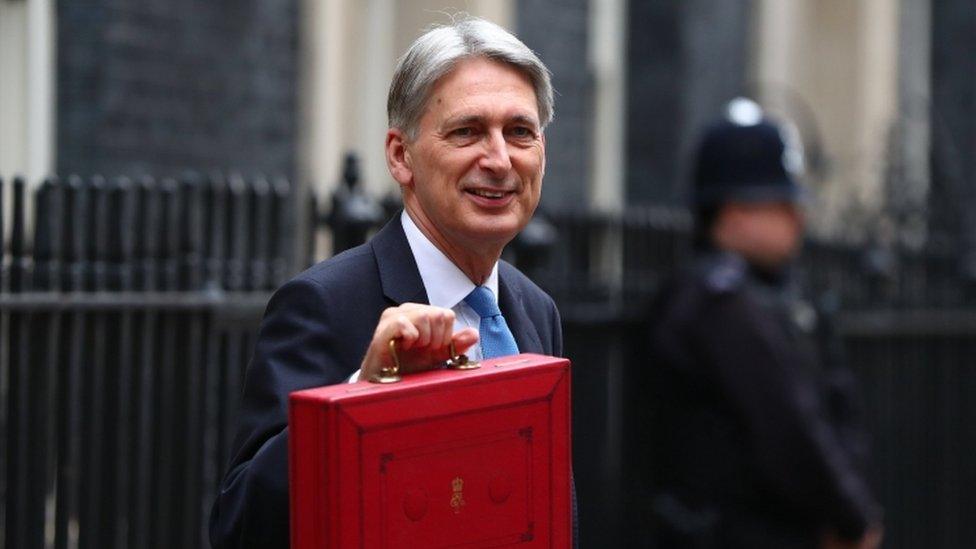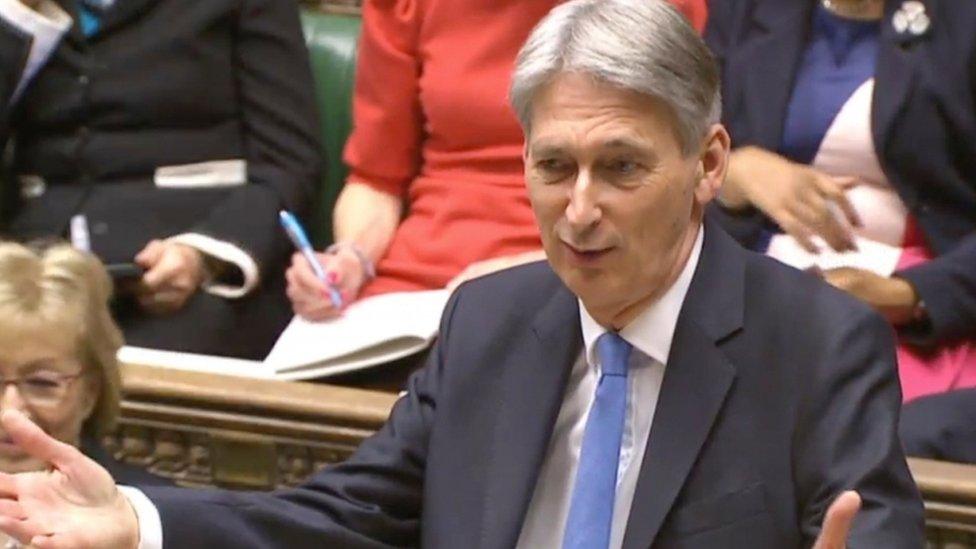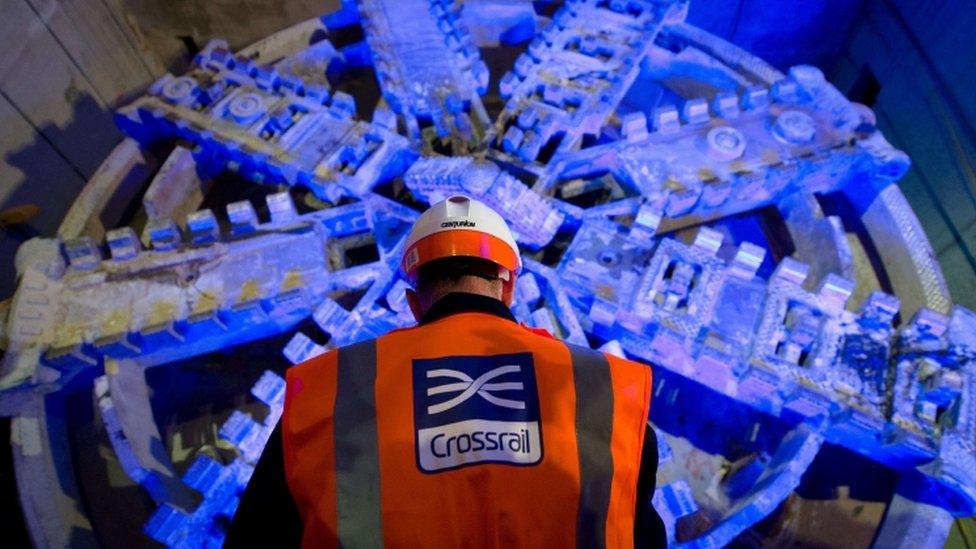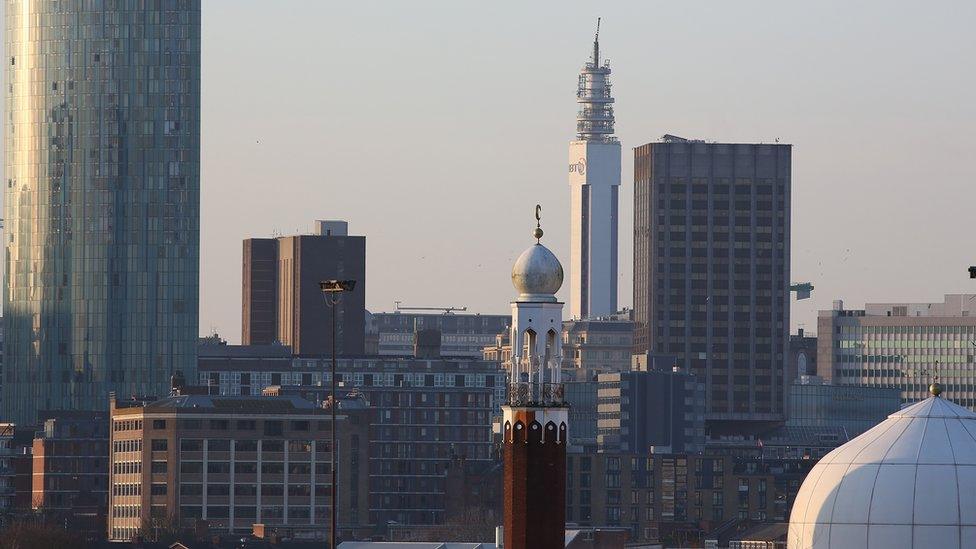Budget promises second West Midlands 'Devo Deal'
- Published

Mr Hammond put a smile on the face of the Midlands metro mayor during the budget
Devo deal or no deal?
No sooner had the Chancellor Philip Hammond uttered the words than the Midlands metro mayor was tweeting his delight that a second West Midlands "Devo Deal" was confirmed in the Budget.
Andy Street will now be able to enlarge his team in order to establish a new task force to deliver the new homes which he has made one of the main priorities of his term in office.
Hence the go-ahead for his much-vaunted pilot scheme to combat homelessness codenamed "Housing First".
This is expected to draw on his experiences during a recent visit to Finland, where intensive efforts to house homeless people has been meeting with considerable success. Only the following day, as the details of the deal were published, did it emerge that the role of the Police and Crime Commissioner will be incorporated into that of the mayor after the next round of elections in 2020.
Can idea from Finland cut UK's homelessness problem?
Also included in the deal is the £250m announced by the Prime Minister last Monday in Birmingham to complete the Midlands Metro extension through the Black Country to Brierley Hill as well as a share of the investment in the development of driverless cars, with Birmingham's designation as a technical hub in support of businesses and skills.
Half of the new £1.7bn City Transformation Fund, also announced in Birmingham on Monday, will be shared between the six city regions with elected metro mayors.
So Mr Hammond is clearly keen to demonstrate his devolutionary credentials.

The move hands more power and money down to Andy Street for West Midlands projects
He tells us: "The investments I have announced today back the West Midlands with a significant cash boost for transport improvements to connect people to jobs and make journeys quicker for everybody right across the country."
On the other hand, the new "devo deal" makes no mention of devolved tax raising powers, widely touted as a likely 'next step' at the outset of what the then Chancellor George Osborne called the "Devolution Revolution".
Mayor Street may well be allowed a measure of extra flexibility in raising revenue, but there is no sign for the foreseeable future of anything resembling a local income tax or VAT.
Is the Government going cool on devolution now that Mr Osborne is no longer in office?
Is there a "control freak" tendency in the Treasury which makes it reluctant to hand over the purse strings, even in areas like Adult Education and Skills which had supposedly been agreed under the first "devo deal"?
A fair deal?

London's transport project Crossrail got a budget boost
Labour are keen to blunt any impression that this is some kind of devolutionary extravaganza.
They contrast the money shared out between the regions with the largesse showered on London, with big ticket items including including Crossrail.
On the eve of the Budget, six of Birmingham's Labour MPs hand delivered a letter to the Treasury accusing the Government of short-changing the city.
They quoted the city's council leader Ian Ward's calculation that even on the Government's own formula, Birmingham is underfunded by £100 million.
Councillor Ward says making up the shortfall would enable the council to relax the pay cap for staff and to finance the new Better Care Fund which, in turn, would ease the problem of so-called "bed blocking" in local hospitals.

Is Birmingham underfunded? Our politicians seem to think so
Labour MP for Birmingham Hodge Hill and Shadow Digital Minister Liam Byrne said: "We've already seen the biggest cuts in local government history.
"The Prime Minister can magic up £1 billion to finance her friends in Northern Ireland to prop her up in power when she needs to.
"We say it's time for a fair deal for Birmingham."
Give and take
The Chancellor may be giving with one hand in the name of regional devolution while taking away with the other by maintaining the squeeze on existing local authorities.
Maybe that's what he means when he calls it "a balanced Budget".
So there are plenty of talking points for this weekend's Sunday Politics Midlands, when I'll be joined in the studio by the Health Minister and Conservative MP for Ludlow, Philip Dunne; the outspoken Labour MP for Birmingham Yardley, Jess Phillips; and the Chancellor of the University of Birmingham Lord Bilimoria, the founder of Cobra beer who now sits as a crossbench peer in the upper house.
And I hope you will join us too at 11.00 on BBC One on Sunday morning, 26 November 2017.